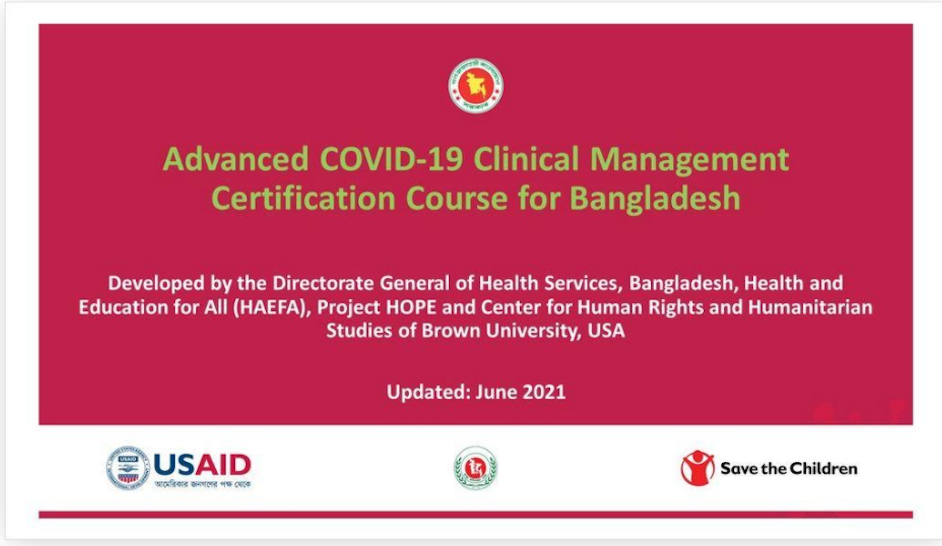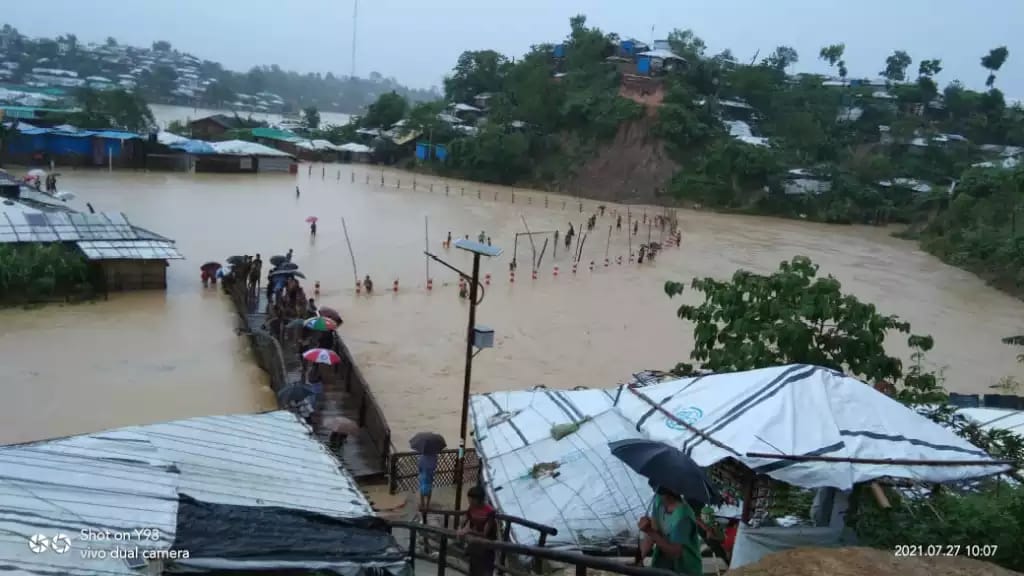Flash Flooding and Landslide Devastates Rohingya Refugees!
Heavy rain caused by monsoons have caused flash flooding and huge landslides in the Rohingya refugee camps which have killed at least 11 and left thousands of Rohingya families homeless yet again. These flash floods and landslides are the next tragic event to happen to the suffering Rohingya refugees and are likely to continue as local weather officials predict the heavy rain will persist over the next few days.
The Rohingya people live on steep hills in makeshift housing made from bamboo, plastic tarps, and mud. As the monsoon rain continues, these houses are easily swept away as the ground beneath is eroded and falling or drifting debris becomes a major concern to all people in the area. Filthy rain water mixed with silt has accumulated and is quickly rising to submerge all in its path.
At least 3 children have been confirmed dead as they were crushed in their homes by a large chunk of a falling hill. Other casualties include children drowning in the flooded streams near Palong Khali refugee camp. More bodies will inevitably be found when the water levels decrease and the rubble is lifted. The elderly and sick are also at high risk, as they also lack the means to relocate to safety.
Many Rohingya have been injured from these catastrophic events and require immediate medical attention. Moreover, HAEFA’s medical center 1W Kutupalong remains in imminent danger of submerging due to poor drainage systems and surrounding dense forests. While several Rohingya Refugees died, some are currently hospitalized and thousands were relocated in the South-east camps in Bangladesh.
We urge you to support the Rohingya people in their time of need. By donating to HAEFA, you will be helping supply our emergency medical and rescue teams with the supplies and PPE they need to save lives as the flash flooding continues. Your donations will also be used to provide medical treatment to the many Rohingya who have been injured and infected by various water-borne illnesses. Once the water levels lower, there will be an increase in water-borne and other infectious diseases that will require increased resources to be managed by HAEFA.
Please extend your support for these suffering people and spread awareness of this catastrophe by sharing with your friends and family!
Rohingya Camp Activity:
Prior to the flash flood and landslide, the HAEFA medical team in the camps were able to provide healthcare to the refugees, with a total of 173,000 patients seen between October 2017 and July 2021.
Number of Patients Seen:
Kutapalong Balukhali
June: 1,904 June: 905
July: 2,118 July: 867
HAEFA has also treated 88 patients exhibiting COVID-19 symptoms (but not tested) in the Rohingya camps in July 2021, and 37 patients as of August 5th, 2021.
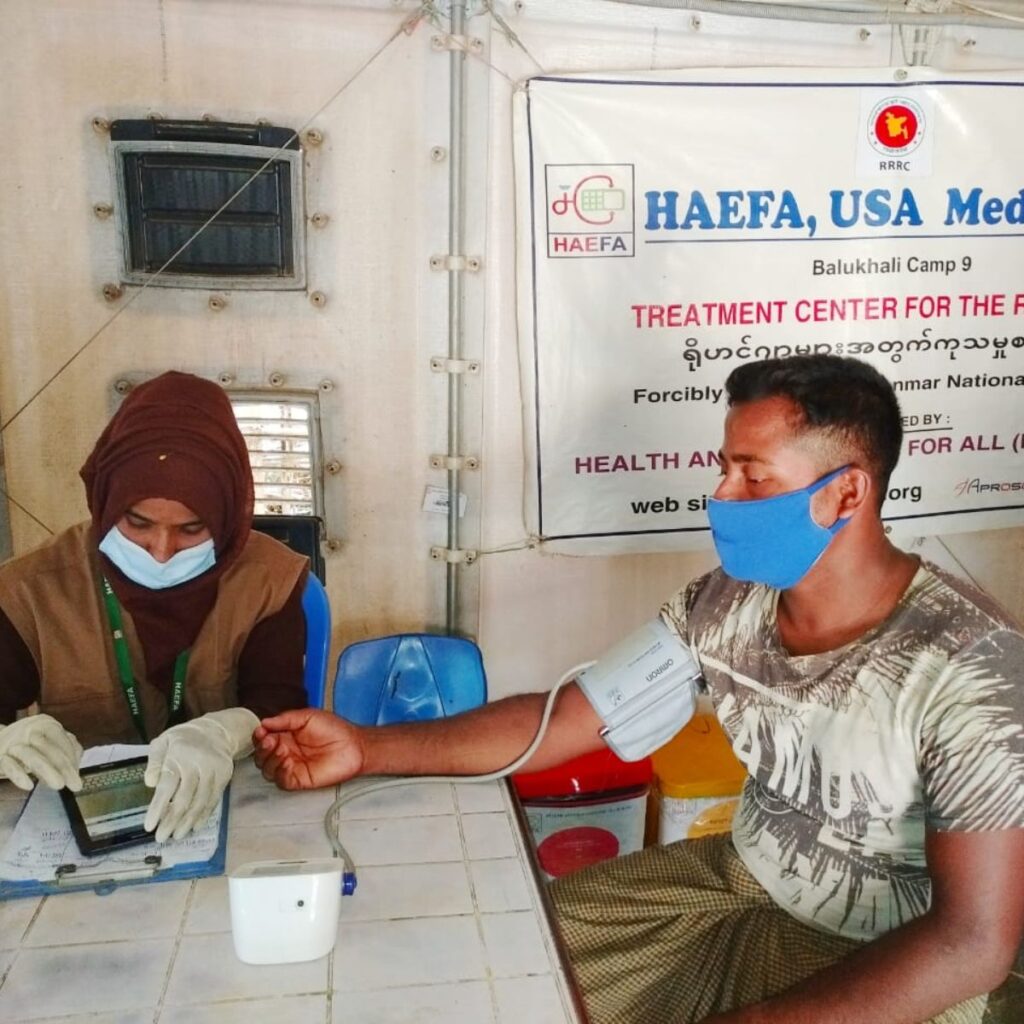
Cervical Cancer Screening Program
Kurigram
The camp in Kurigram has been re-opened after being closed for a few weeks due to COVID-19 related lockdown. Since October 2019, HAEFA cervical cancer (CC) screetiing team has been working in 3 subdistricts/Upazilas: Ulipur, Chilmari and Negashwari. Recently, HAEFA CC team has expanded to working in all 9 subdistricts where women aged between 30 and 60 years of age are being informed of HAEFA’s activities and CC Screening by the community mobilizers, who counsel people for screening.
Cox’s Bazar
HAEFA has appointed a Project Coordinator, two medical officers, one IT manager alongside two assistants, one project assistant and two office assistants for the Cox’s Bazar site office in June 2021. The Inception Workshop on the “See & Treat” approach to screening and treating precancerous lesions of cervical cancer was held on June 10th 2021. After the workshop, the Cervical Cancer (CC) Team visited their respective UHCs, DH and MCWC to be introduced to their UHFPOs, Superintendent, DDFP, MO clinic, RMO, and other key stakeholders and see the existing VIA screening facilities in the respective centers.
The CC team is in the process of procuring VIA beds, examination screens, consumable items and other necessary arrangements to send to all the centers /UHCs in Cox’s Bazar. |
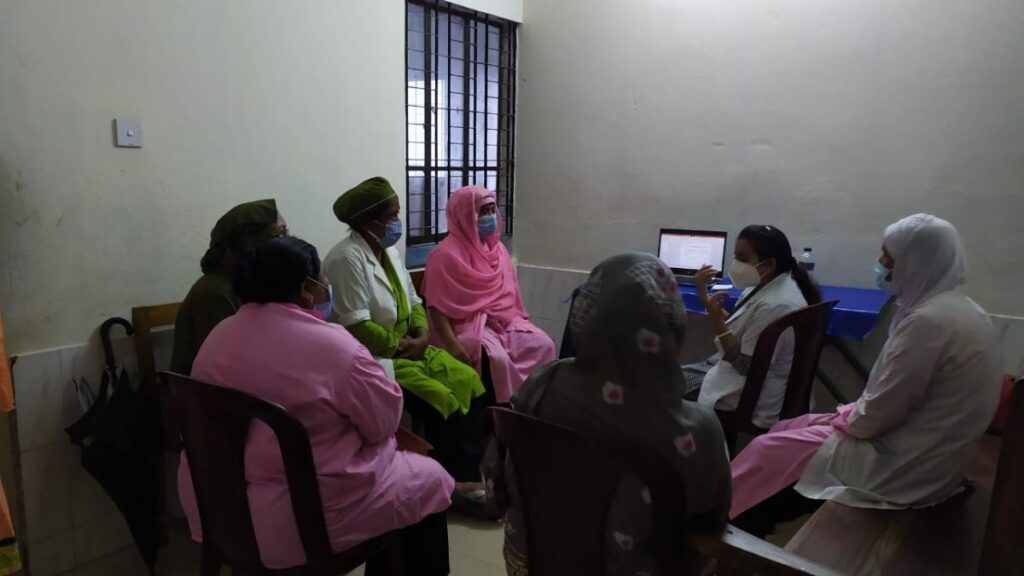
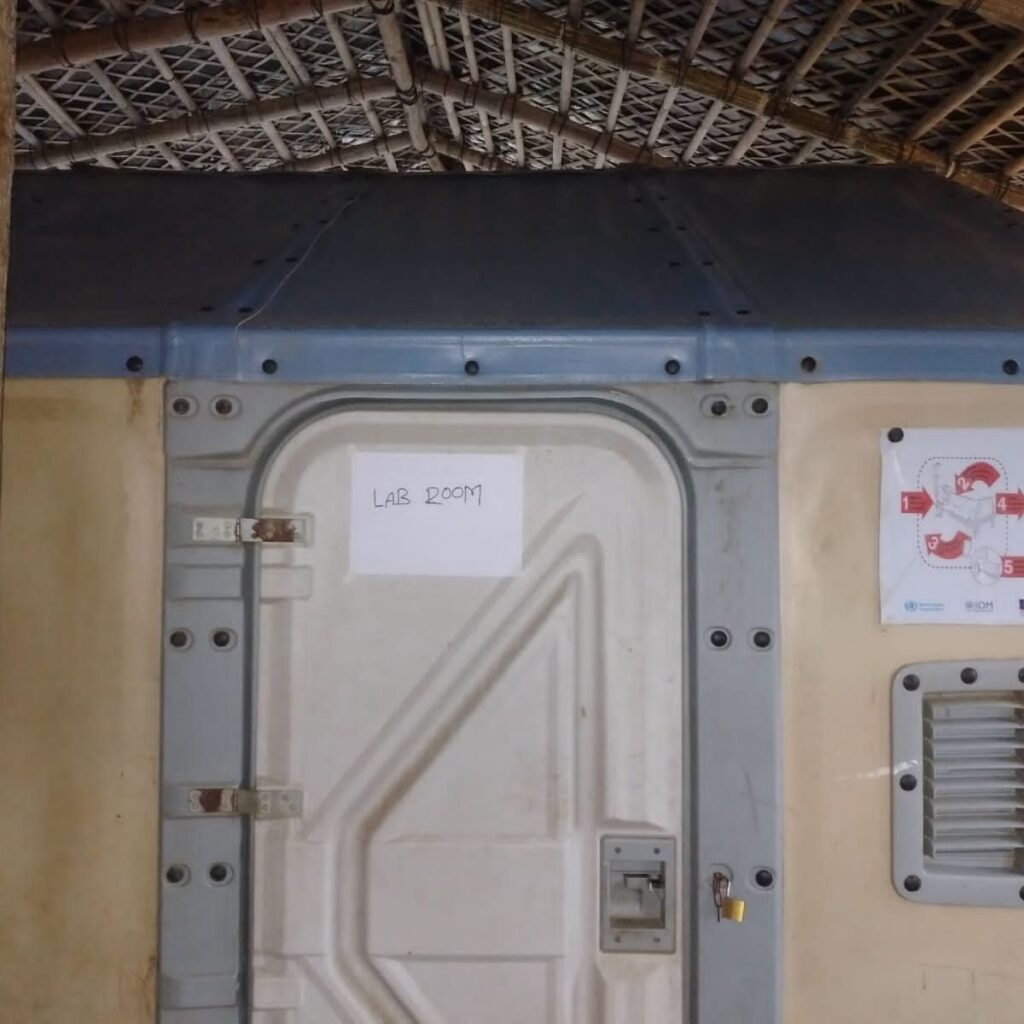
Pathology Laboratory in Balukhali
| When patients in the refugee camp visit our facilities with non communicable diseases (NCD) such as diabetes and hypertension, they undergo a few point of care tests at the HAEFA clinics. A need for HbA1c, lipid profiles, serum electrolytes and albumin, liver and renal function tests, Hb%, Pregnancy tests, etc was felt. Due to lack of diagnostic facilities in the camps, HAEFA has partnered with PwC Foundation and is currently setting up a Diagnostic Laboratory for the above tests to help determine prognosis and manage secondary compilcations of NCDs. The laboratory construction is expected to be completed in September 2021. LABAID is providing technical assistance to set up the Lab. Once the Lab is completed, HAEFA will be able to provide advanced care to the Rohingya refugees. |
Update: Renovation of Health Centers
| In collaboration with PwC Foundation, annual renovation of the HAEFA health centers in camp 1W (Kutupalong) and camp 9 (Balukhali) is being completed soon. Roof work has been completed, and toilet renovation is 80% complete. |
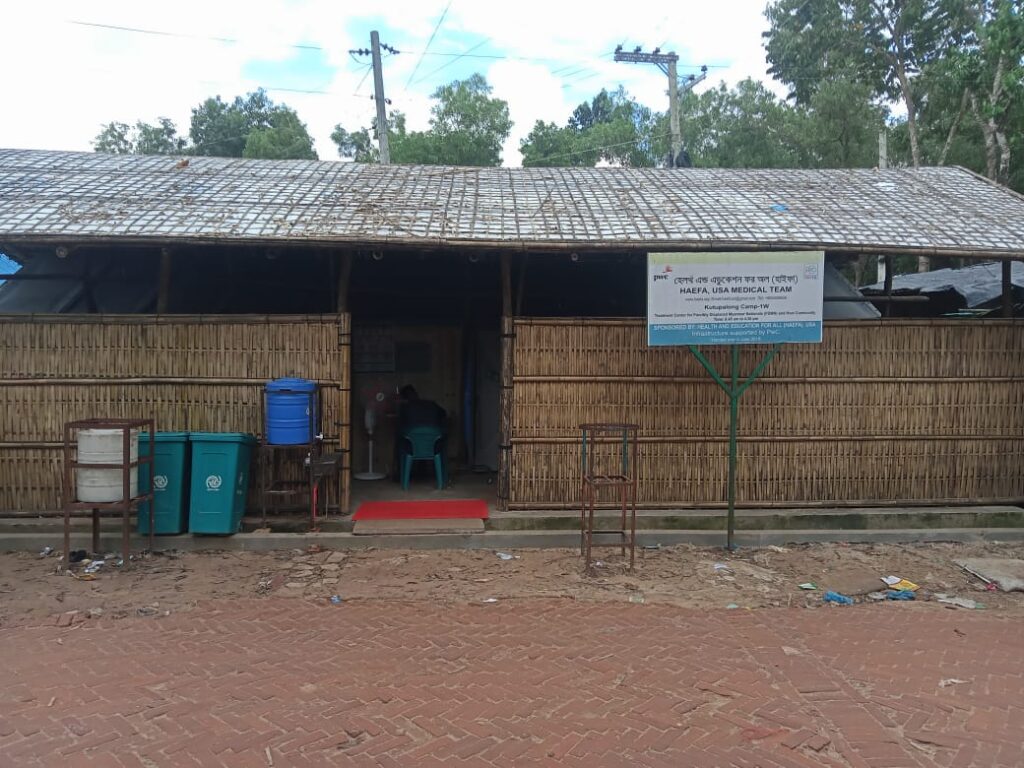
Advanced COVID-19 Clinical Management Certification Course
In collaboration with Brown University CHRHS, Project HOPE, DGHS Bangladesh, Bangladesh National COVID-19 Guideline Committee, SCIB and USAID, HAEFA has developed and launched a new, web-based, interactive Advanced COVID-19 Clinical Management Certification Course on the DGHS website. This course is contextualized for Bangaldesh with a major goal to help the physicians of Bangladesh acquire a standardized COVID-19 management and treatment protocol in a convenient, self-paced manner through a series of 3 hour prerecorded videos and interactive case scenarios .
- More than 1800 doctors are currently registered for the course.
- 694 physicians completed the training course.
- 336 have obtained online, printable certificates issued by Brown University CHRHS, Project HOPE, HAEFA and DGHS, Bangladesh.
Program Updates
- An audio-visual promotional video for the COVID-19 certification course was produced with the goal of raising awareness of the course among doctors across the country.
- A letter from the DGHS was sent to all BMDC-registered physicians to promote and recognize the need for the course nationally to help train Bangladesh physicians with a standardized evidence-based treatment protocol for COVID-19 management.
